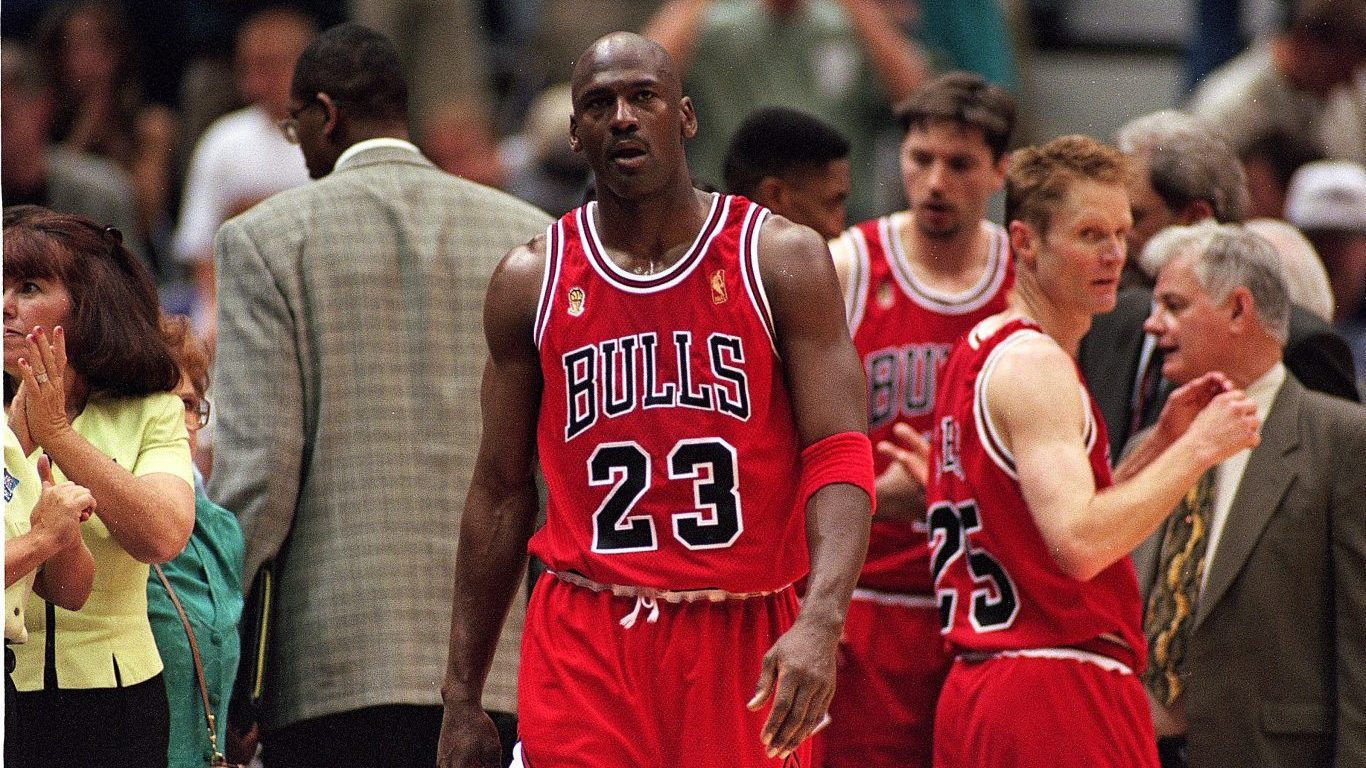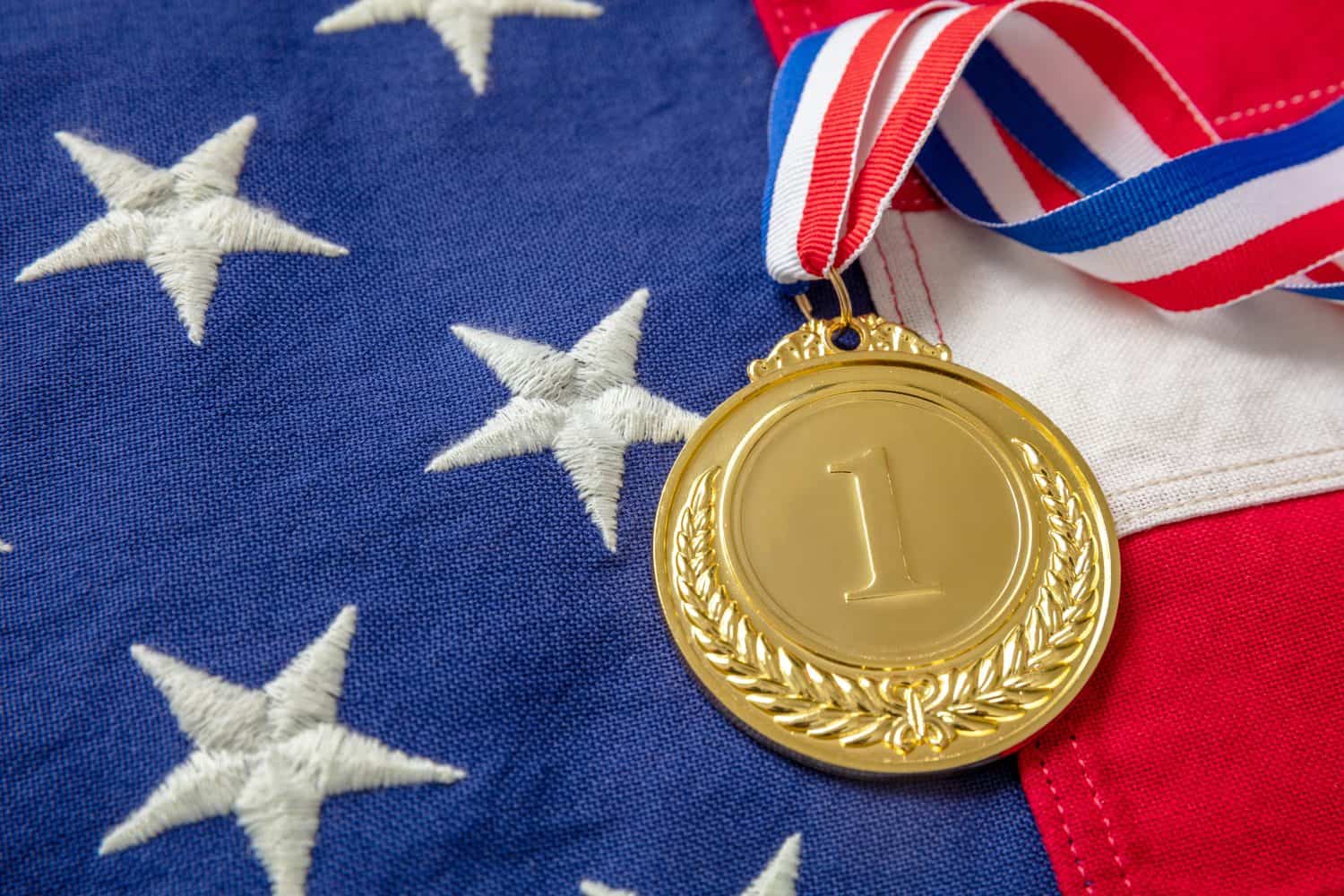
In the ancient Olympics, Greeks competed for a crown made from living olive branches, but more importantly, the achievement and acclaim of being the best of the best. Our modern Olympians are not so very different. Believe it or not, 2024’s bronze medal is worth about as much as a box of Pop-Tarts! Don’t trade that medal for a snack yet, though, because it just might be worth more than a million dollars one day.
24/7 Wall St. Insights
- The meltdown value of the 2024 Olympic medals ranges from $5-$1,000
- Medals can be worth much more at auction when connected with a noteworthy person or event such as a world record holder or historic political situation.
- The most valuable Olympic gold medal ever sold went for $1.4 million.
- Also: 2 Dividend Legends To Hold Forever
Your Connection

Investing in Olympic memorabilia can be lucrative for those who know what to look for. You might apply some of these examples to identify not only valuable Olympic medals, which come up rarely for sale, but also other items like uniforms or other athletic gear you could have the chance to bid on.
You can notice as well that things often become valuable because of the story connected with them. If the person who owned them was remarkable, the events were historic, and something about it touches the heart, then buyers are more likely to want it.
At a philosophical level, you can consider how some of the things you pour your effort into in life, such as learning a musical instrument, writing a novel, or your own athletic achievements, may not make money for you, but are nonetheless worth the investment of your time and energy because of the intangible benefits they bring. And you might also want to write down or tell the stories of your meaningful belongings to your children so that they will see those things as valuable as well.
What Are Olympic Medals Actually Worth?
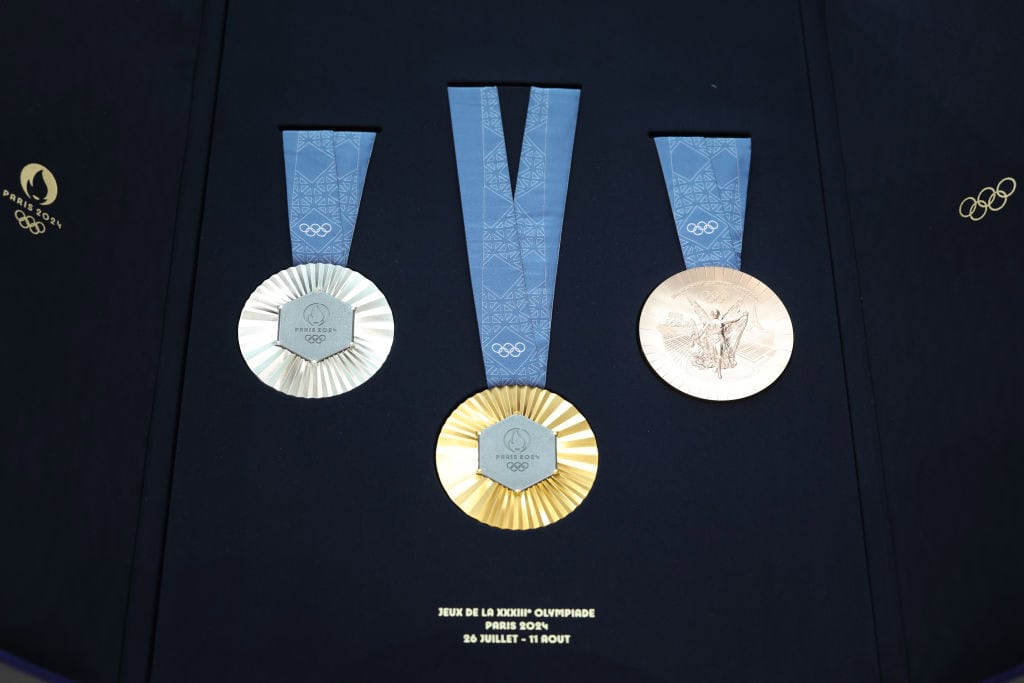
An Olympic medal is kind of like a wedding ring. The actual metal is not worth all that much, but the symbolism of it and its connection to a life-changing event is priceless.
There’s a new design for the medals of each Olympics that has some connection to the host city. For the Paris Olympics, the gold and silver medals have a centerpiece made of iron salvaged from remodeling the Eiffel Tower, with clasps that look like the rivets studding the tower. The gold medal is made of 92% silver with just 6 grams of 24k gold plating.
Olympic gold medals are worth about $1,000, silver medals are about $500, and bronze medals are only about $5. If that sounds cheap, just remember everyone who came in less than 3rd place got nada!
How Do Olympians Cash In?

Product sponsorships and endorsements are the main ways Olympic athletes can make money after the Games are over, as well as speaking appearances, training other elite athletes, writing books, or even film rights to their story.
- Swimmer Michael Phelps won a total of 28 Olympic medals (23 of them gold) and broke 39 world records. His net worth today is over $100 million through contracts with brands like Visa, Under Armour, and Subway.
- Snowboarder and skateboarder Shuan White is a 3-time gold medalist with $68 million from deals with Red Bull, Target, Ubisoft, Burton Snowboards, and others.
Only 5% of Olympic athletes achieve this level of financial success, though, while the others have to find jobs like the rest of us. That means Olympic medals do come up for sale from time to time when an athlete runs on hard times or their descendants decide to cash in. And sometimes, that cash-in is enormous. Here are a few examples.
5. Leuris Pupo ($73,205)

Cuban athlete Leuris Pupo competed in the men’s 25-metre rapid-fire pistol event at four different summer games: Sydney (2000), Athens (2004), Beijing (2008), and London (2012). He placed 9th, 7th, and 7th in the first three competitions before taking the gold in London. He earned a score of 34 in the final, which equaled the previous world record. Moreover, this was the first time a Cuban citizen won a gold medal in any Olympic event, making Pupo instantly a national hero. He went on to take the silver in the 2020 Tokyo Games. He’s currently competing in Paris, making this his 6th Olympics.
In 2021 his medal was auctioned and predicted to fetch about $50,000 but instead brought in $73,205 from an American investor. With Pupo’s underdog back-story and the national pride his win brought to Cubans everywhere, it’s a safe bet this is one gold medal that will keep rising in value.
4. Bob Beamon ($441,000)
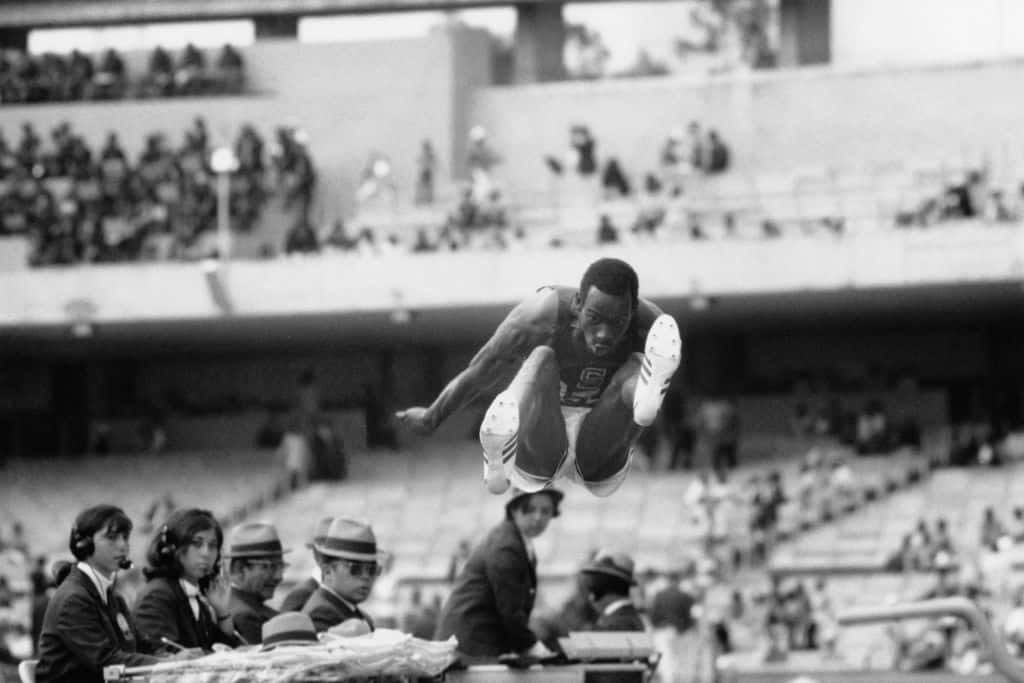
At the 1968 Games in Mexico City, Bob Beamon showed that a man can fly. On his first attempt at the long jump, he leaped 8.90m (29′ 2.5 inches). This was a full 22 inches further than the previous world record; so far, in fact, that it exceeded the capability of the electronic system used at the time to measure the distance. Beamon’s record remained undefeated for 23 years. When his gold medal went up for sale in 2024, the highest bidder paid a whopping $441,000.
3. Luz Long ($488,000)
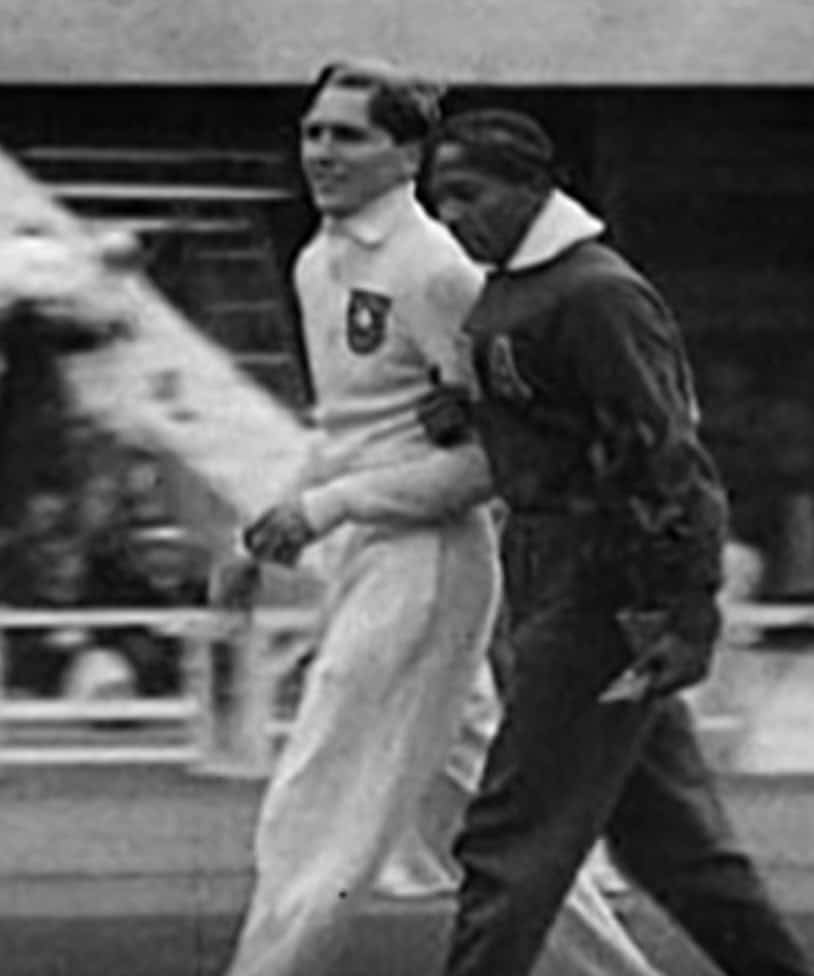
The 1936 Olympics took place at a politically-charged time. Just 5 months earlier that year, Hitler sent his troops into the Rhineland, the German border region with France that was supposed to remain demilitarized under the terms of the Versailles Treaty at the end of World War I. The Nazi regime was promoting racist rhetoric about the superiority of the Aryan race. The Berlin Olympics of 1936 was the perfect venue for the regime to demonstrate Nazi superiority while the world was watching (or listening on the radio).
Jesse Owens shattered that conceit. The African-American track and field athlete surpassed all his competitors, including Germans, to win four gold medals in the 100 meter, 200 meter, the long jump, and 4 x 100 meter relay. And then another amazing thing happened. German athlete Luz Long took the silver in the long jump. Looking fully the picture of the blond-haired Aryan ideal, Luz walked arm-in-arm with Owens through the stadium in a victory lap in full view of Hitler and thousands of fans. It was a moment of respect, racial unity, and international cooperation that was precious and rare at that deeply troubled time in history. The name “Luz” comes from a root meaning “light.” So when his medal and other personal memorabilia went up for auction, the collection was called the “Beacon of Hope.” And that silver medal that represented such hope brought $488,000.
2. Wladimer Klitschko ($1 million)
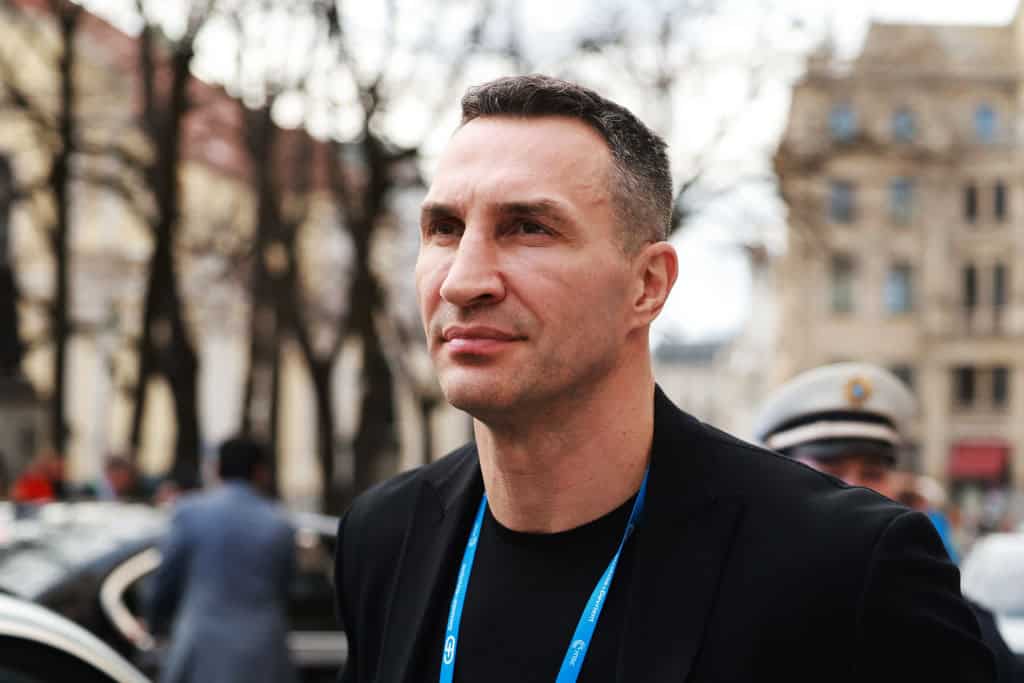
You don’t want to mess with the Klitschko brothers. The Ukrainian boys both grew up to become world-famous professional boxers. Vitali went on to become the mayor of Kyiv since 2014 and Wladimir served in the Territorial Defense Brigade to defend the city from Russian invaders. If you ever got in trouble with them, you’d do well to get their mama on your side. To this day the “boys” have never fought a professional match against one another to honor her request that her sons not fight.
Wladimir took the gold in 1996 in Atlanta. But he has a heart of gold that’s even bigger because he decided to auction his medal to raise funds for charity to help improve the lives of Ukrainian children. The top bidder took it home for $1 million in 2012, but then promptly returned it to Wladimir to show his respect and make sure such a precious heirloom could remain within this talented and honorable family.
1. Jesse Owens ($1.4 million)
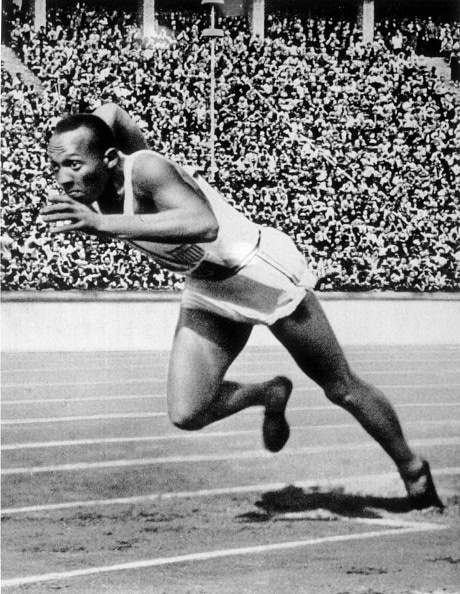
We already told you the back story of Jesse Owen’s Olympic win in Berlin (1936) in our account of Luz Long. Owens won four gold medals and then after the Olympics went on to be hired by the United States government as the director of athletic programs for African-American soldiers.
Owens became friends with Bill “Bojangles” Robinson, the most successful black dancer, singer, and actor in the United States at the time. You might remember him from a famous film clip, dancing with young Shirley Temple. Out of gratitude for Robinson’s help in building his post-Olympics career, Owens gave him one of his gold medals. It passed to his wife and went up for auction in 2013 after she passed away, bringing a record $1.4 million. That makes it not only the most valuable Olympic medal of all time but the most valuable piece of Olympic memorabilia of any kind.
Thank you for reading! Have some feedback for us?
Contact the 24/7 Wall St. editorial team.

